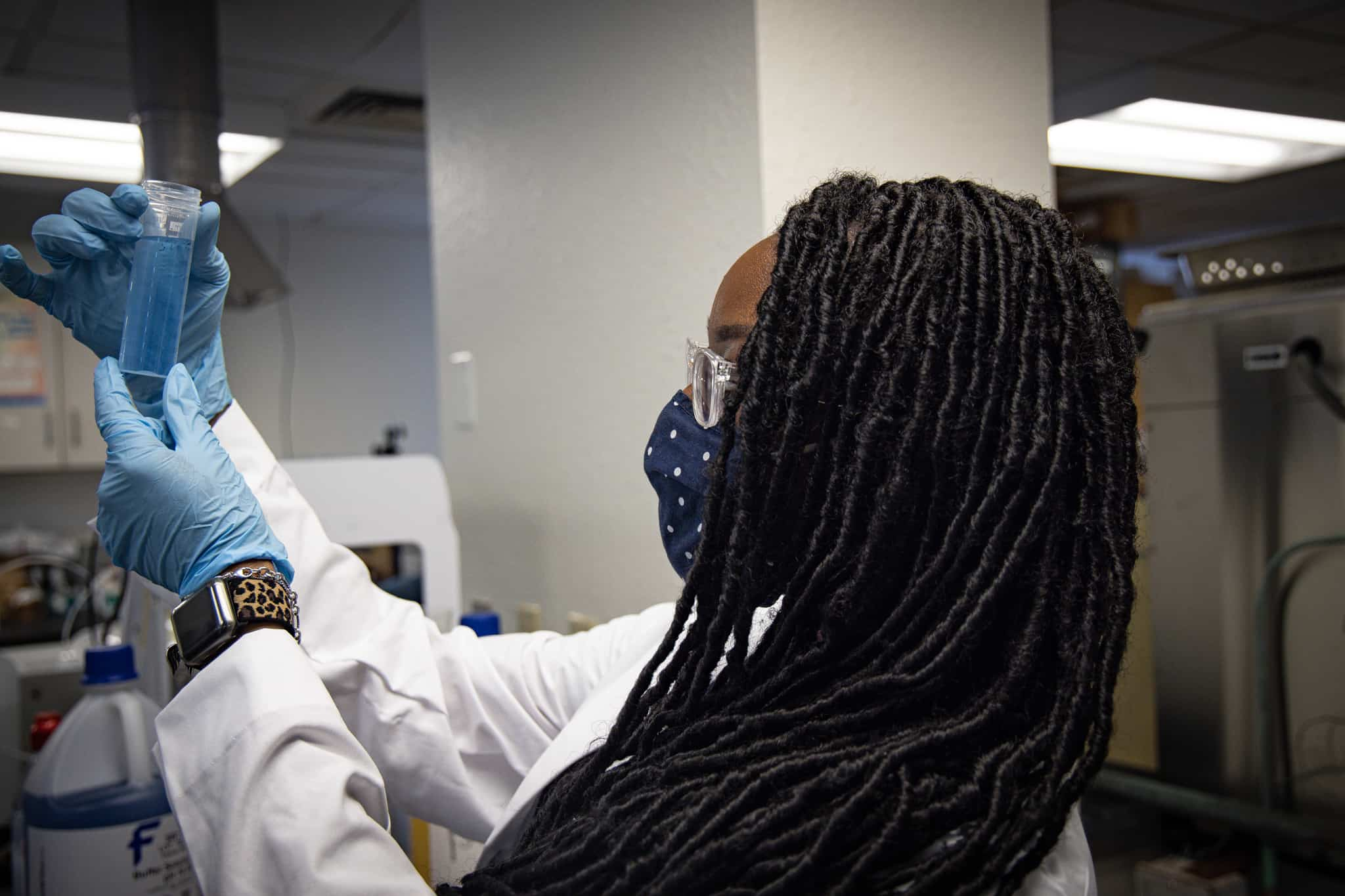Academic Programs in Chemistry

Interested in mastering the elements?
Earning a Bachelor of Science degree in chemistry gives you a foundation in areas such as organic, inorganic and physical chemistry.
A bachelor’s degree in chemistry puts you in an exciting and dynamic field with exceptional career opportunities. Lincoln University’s diverse chemistry curriculum prepares and positions graduates for success in industry, graduate school and teaching.
LAB TIME
As a chemistry student at Lincoln, you’ll work through current and relevant problems that prepare you for a job – and professional advancement. Your research and laboratory experiences reinforce empirical science methods.
REAL-WORLD READINESS
As a student studying chemistry at Lincoln, you’ll get the support you need to begin using specialized software that chemists commonly use in the workplace. You’ll also be able to create computer-generated graphics – a necessity in today’s science-focused careers. Plus, graduates leave Lincoln with a portfolio of lab reports to showcase your ability to communicate complex scientific data and conclusions.
DEGREE OPTIONS
- Bachelor of Science in Chemistry
- Bachelor of Science Education in Chemistry
- Minor in Chemistry
CAREER OPTIONS
- Chemical engineer
- Chemical health and safety professional
- Chemistry teacher
- Environmental protection agent
- Food and drug research scientist
- Forensic chemist
- Research chemist
- Science policy analyst
- Quality assurance specialist
- Water chemist
SALARY PROJECTIONS
$53,000 - $100,000
LINCOLN UNIVERSITY ADVANTAGES
- Affordable tuition
- Competitive scholarships
- Professional advising and academic resources
- Small class sizes
- Exposure to real-world lab environment
- Research opportunities
- Highly qualified, dedicated faculty
- Individual attention
- Internship support
- Academic resources
